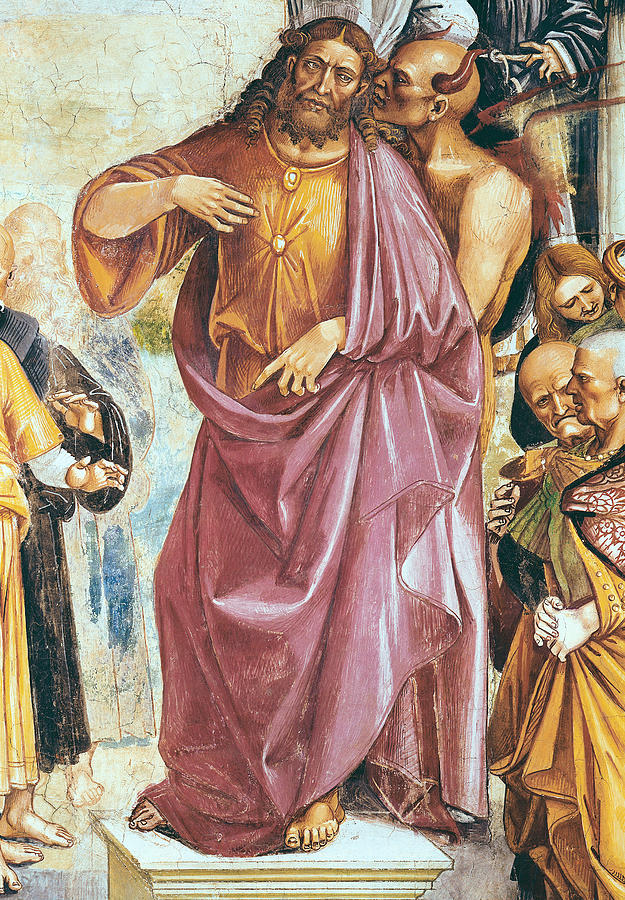“Beware of false prophets who come to you in sheep’s clothing but inwardly are ravenous wolves” (Matthew 7:15)
These words of Jesus come at the end of the Sermon on the Mount, where Jesus teaches us what it means to live a life centered on the will of God. These words are preceded by our Lord’s description of the narrow gate: “Enter by the narrow gate; for the gate is wide and the way is easy that leads to destruction. For the gate is narrow and the way is hard that leads to life, and whose who find it are few.” It is a shame that this gospel passage was eliminated in the 1970 Lectionary for Mass. For Jesus’ words in this passage are exactly what we need to hear in these times.
Who are these wolves in sheep’s clothing who are ravenous for the blood of the sheep, seeking their destruction? They are precisely those who deny the narrowness of the gate to eternal life and thereby cause many sheep to go astray. They wear sheep’s clothing not only so that they look like one of the flock, the chosen ones of the Pastor who loves his sheep. They wear sheep’s clothing to give the appearance of being warm and cuddly, concerned for the welfare of the sheep, skipping along, humming catchy tunes, leading them into wide open spaces where they can pretty much do whatever they want.
And the sheep respond positively, because it is easier to believe that freedom consists in doing whatever you want to do than what Jesus the Good Shepherd tells us what we should do to gain eternal life. It is easier to believe that the gate to eternal life is not only wide but in fact has no barriers at all, so that everyone goes to heaven, rather than to believe what Jesus says: that the gate is narrow and few find the entrance. It is easier to believe that living my life by a rote faith which never impacts the deepest parts of my being will get me through the gate of life rather than living my life in fear and trembling knowing that I am a sinner in need of God’s mercy who constantly needs to ask for forgiveness. It is easier to believe that piling up deeds of charity is like money in the bank, so that when the final trumpet calls me to my judgment I can say to Jesus: Lord, Lord! Look what I have done, look at how good I was, this is what I did and I did it with your name on my lips. It is easier to believe this than to accept the truth of my own mixed motives for any good I may have done, my religiosity masking what is really pride.
What Jesus tells us today is so important. He says: Stop believing those who tell you that to be a Catholic in the deepest sense is an easy matter, that there is little need for penitence, ascetism, prayer, hiddenness and hard love. Stop believing those who tell you to just go natural, do what you instincts tell you to do, be nice to everyone, follow the path that gives you the greatest personal freedom without encroaching on the freedom of others: set your goals, and all will be well.
But what the ground produces when left on its own, naturally, are weeds and thorns and thistles. They need no pruning, no care. They spring up in shallow soil, need little water or nutrients. This is what happens when the ground is left on its own to produce. And this is what so many of us are, despite our religious pretensions: weeds, thistles, thorn bushes. But we think of ourselves as fruit trees laden with beautiful and good fruit waiting to be picked. Why do we not see ourselves as we really are? Because we have chosen the wide path, we have chosen to follow those who are in disguise, those who blind us to the truth, those who have persuaded us that wolves are sheep.
So what are we to do? We must return. We must return to that path that leads to the narrow gate, that path that demands repentance and confession. And we must remain on that path, refusing the siren song of the easy, happy way to eternal life. We must allow Jesus to whet our interior appetite for fruit of the finest sort. We must recognize him in the depths of our being and allow him to be that hidden seed that will enable us to grow, engrafted on the Tree of Life, and to allow him to prune our branches when needed, knowing that the pain of this pruning is evidence of his love for us, and that we are on the right path. We must allow the beauty of the goodness of Christ to take such a firm hold within us that when we hear the strumming pleasantries of the song of comfort and sentimentality and easy love, we will recognize it for what it really is: the howl of the wolves determined to destroy us.
